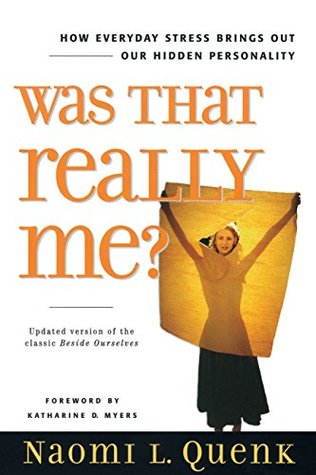More on this book
Kindle Notes & Highlights
Started reading
August 15, 2022
For the most part, projection is a normal psychological process that enables people to relate to each other by recognizing areas of similarity and mutually shared interests and values. We feel secure and comfortable when we see aspects of ourselves in others; similarly, we may be suspicious, fearful, and distrustful when we meet people who are very different from us. “Finding” ourselves in others thus serves as a connecting link to our shared humanity and prevents the isolation and loneliness we would experience if we were completely unique and disconnected from other people. If we withdrew
...more
In type theory, balance does not refer to equality of two processes or of two attitudes; instead, it means superior skill in one, supplemented by a helpful but not competitive skill in the other.
Perception without judgment is spineless; judgment with no perception is blind. Introversion lacking any extraversion is impractical; extraversion with no introversion is superficial.
Without devoting a fair amount of energy to something, people do not become adept at it. Without being better at some things than others, one person is largely indistinguishable from another, is likely to act and react in automatic, instinctual ways, and, as a result, is likely to lack what we recognize as individuality.
You may find in reading about your type that some things are very true for you, while others simply don’t apply. This is to be expected when we are describing individuality. It is the same with general type descriptions. Some aspects of our type are simply more salient than others.
In its extreme form, the grip experience of Introverted Thinking types may manifest as a feeling of profound and infinite separateness from the whole of humanity. The ISTP or INTP is convinced that he or she is unloved and ultimately unlovable. Some relive childhood feelings of being extremely different from other children, marching to a different and unacceptable drummer, often with no clue about how others see things. The memory of childhood misery and helplessness may intensify the adult’s inferior function experience.


